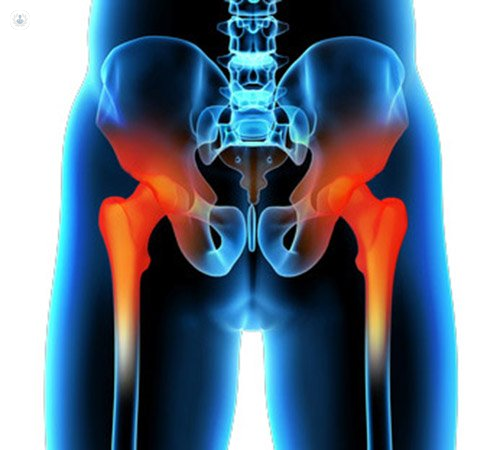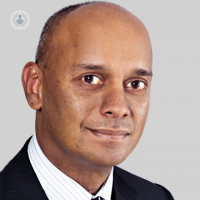When should I consider a hip replacement?
Written by:Are you currently considering undergoing hip replacement surgery? If so, make sure you read on to find out at what stage you should consider it, how often one might require a hip replacement, and what the potential associated complications could be, as highly accomplished consultant trauma and orthopaedic surgeon, Mr Michael Thilagarajah provides us with an all-you-need-to-know guide with regards to hip replacements.

When should someone consider a hip replacement?
Firstly, it is very important that the patient understands that hip arthritis is the reason for progressing to a hip replacement, which should be proven by imaging, such as an X-ray. The hip pain, of course, has to be severe enough to warrant such a major procedure. Hip arthritis can lead to mild pain, but hip replacement surgery should be considered once this pain begins to become severe.
How often might someone require a hip replacement? Is one generally enough?
We generally get excellent longevity out of the replaced hip joints. The results are very positive, and have been for many years now, and we generally expect between 10 and 20 years of function from a well-implanted hip replacement. Age, of course, might influence the overall longevity, but generally speaking, it will be between 10 to 20 years before a new replacement is considered.
What are the associated potential complications?
You are exposed to certain risks when you undergo a hip replacement. These typically include:
- dislocation
- infection
- thrombosis (blood clots in the leg)
- bone being broken
- tendon and muscle damage
- wear and tear
What is the general recovery time like?
Recovery from hip replacement is surprisingly quick. Within a day or two days, most patients will be discharged from hospital. Once the wound is healed and physiotherapy has begun, the majority of patients really feel the true benefit of the hip replacement after a period of six weeks.
Mr Michael Thilagarajah is a highly qualified and skilled consultant trauma and orthopaedic surgeon who specialises in hip replacement surgery. Book a consultation with him today if you are considering undergoing one in the near future.


